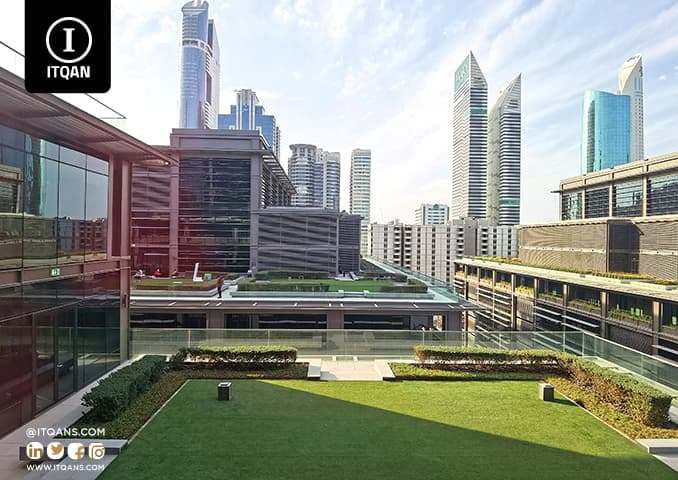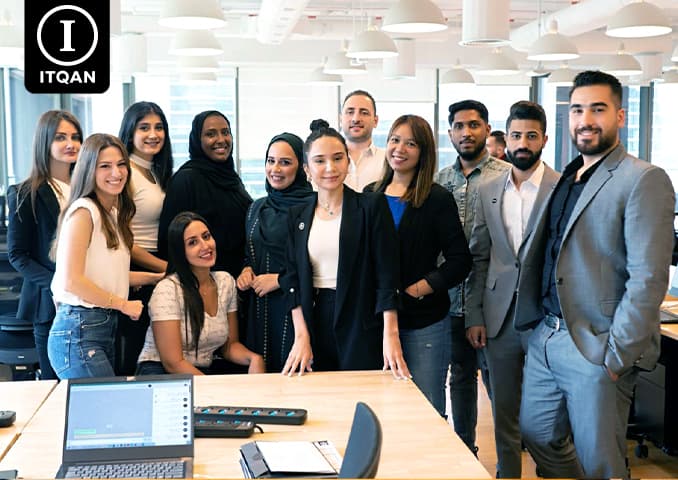Establishing a company in a free zone is an ideal option for investors and entrepreneurs seeking to establish their businesses in an integrated and growth-encouraging business environment. Dubai, thanks to its strong economy and strategic location as a gateway to global markets, offers many free zones that attract companies from various economic sectors. One of the most important features of free zones is the ability to establish a company with 100% foreign ownership, without the need for a local partner, in addition to enjoying tax exemptions on income and profits for long periods, and providing advanced infrastructure and integrated services that support business needs.
Dubai’s free zones are an ideal environment for small and medium-sized companies, as well as multinational companies looking to strengthen their presence in the Middle East. Thanks to flexible incorporation laws and fast procedures, investors can establish their companies quickly and efficiently compared to other types of business establishment. In addition, Dubai’s free zones provide easy access to international markets through the distinguished transportation and shipping infrastructure.
To get the most out of establishing a company in a free zone, it is essential to understand the legal and administrative requirements, such as submitting the required documents, choosing the appropriate business activity, and determining the legal entity of the company. There are many business activities permitted in the free zones, giving companies the opportunity to expand their business in an environment that supports innovation and development.

Steps to establish a company in the free zone
Establishing a company in a free zone requires following specific procedures. Here are the general steps to establish a company in a free zone:
1- Market study and formulate a business plan: Study the market, identify opportunities and challenges, and formulate a detailed business plan for the company’s activity.
2- Choose the type of company: Determine the type of company you want to establish, such as a sole proprietorship, limited company, personal company, etc.
3- Choose the company name: Choose a unique and appropriate name for your company, and make sure it is compatible with the regulations of the free zone.
4- Identify the shareholders and the share of each shareholder: Identify the shareholders and their shares in the capital and determine the responsibilities and rights of each person.
5- Define the business activity: Define the company’s activity accurately and make sure it is compatible with the regulations in the free zone.
6- Submit the registration application: Submit the company registration application to the relevant government authorities in the free zone.
7- Complete the required documents: Complete and submit all the required documents such as the social contract form, passports, etc.
8- Obtain the necessary licenses: Once the establishment application is approved, obtain the necessary licenses to practice the business activity.
9- Opening a company bank account: Open a bank account in the name of the company and deposit the required capital.
10- Compliance with legal obligations: Ensure compliance with all local and international legal and tax obligations.
جدول المحتوى
ToggleTypes of companies that can be established in a free zone
In free zones, a variety of types of commercial companies can be established according to the laws and regulations specified in each free zone. Here are some common types of companies that can be established in a free zone:
Sole Proprietorship: A company owned and managed by one person, who is responsible for all debts and financial obligations of the company.
Limited Liability Company (LLC): A company in which shareholders own shares in the capital, but are not personally liable for the company’s debts beyond their share.
Joint Stock Company: A company owned by a group of shareholders who own shares in the capital and participate in the company’s profits and are liable for its debts in proportion to their share.
Private Company: A form of company that enjoys great flexibility and is ideal for small and medium-sized businesses.
Public Joint Stock Company: A company whose shares are traded on a public financial market and are available to the general public.
Investment company: A company established to invest in financial assets such as stocks, bonds, and real estate.
Holding company: A company that owns shares in other companies and strategically manages its investments.
Costs associated with setting up a company in a free zone
When setting up a company in a free zone, there are a number of basic costs that need to be taken into account. These costs vary depending on the type of company, business activity, and location of the free zone, but generally include the following:
License fees: Licensing fees vary depending on the type of business activity that will be carried out in the company. These fees include issuing the required commercial license to operate within the free zone.
Company registration fees: There are fees associated with registering the company in the free zone, and they include the costs of the administrative and legal procedures necessary to officially open the company.
Office or commercial space rental fees: These fees depend on the size of the office or space required for your business within the free zone. Some free zones include different options from shared offices to private spaces.
Visa costs: You need visas for employees working in the company, and these costs include residence visas, and the health procedures associated with them.
Administrative and consulting costs: Some companies may include legal and administrative consulting costs to help you complete the incorporation process with ease. These costs may include fees for lawyers or business consultants.
Opening a bank account: Some expenses may be associated with opening a company bank account in Dubai, which is necessary to manage the company’s financial transactions.
Insurance-related costs: Companies often need to purchase insurance, such as employee health insurance and property insurance, which are considered part of the operating expenses.
Annual license renewal costs: After establishing a company, the license must be renewed annually, and these costs include renewal fees and ongoing obligations to maintain the company’s registration in the free zone.
Benefits offered by the free zone for companies
The free zones in the UAE offer many benefits to companies that base their businesses in them, the most prominent of which are:
Tax exemptions: Companies operating in free zones enjoy tax exemptions on personal and corporate income, making them an ideal environment for companies wishing to reduce their tax costs.
Full foreign ownership: Free zones allow 100% foreign ownership of companies without the need for a local partner, making it easier for foreign investors to have complete control over their business.
Ease of establishment and procedures: Free zones offer quick and simple establishment procedures, with specialized offices to facilitate the process of registering companies and issuing licenses.
Re-export of goods: Free zones provide facilities for companies that rely on re-export, facilitating the entry and exit of goods without customs duties within the boundaries of the free zone.
Advanced infrastructure: Free zones are characterized by the availability of advanced infrastructure that includes modern offices, warehouses, and industrial spaces, which makes it easy for companies to carry out their operations easily.
Flexible legislation: Companies in free zones enjoy a flexible legal system that suits business needs and provides greater opportunities for expansion and innovation.
Providing labor: Free zones provide flexible options for employing foreign workers, as they facilitate the recruitment of employees and the issuance of work visas easily.
Top Frequently Asked Questions about Establishing a Company in a Free Zone
What documents are required to establish a company in a free zone?
Documents vary depending on the type of company and activity, but typically include a passport, personal photos, articles of association, business plan, and financial details of investors.
Can foreigners establish companies in a free zone?
Yes, a free zone offers 100% foreign ownership, meaning that foreigners can establish companies without the need for a local partner.
What are the permitted business activities in a free zone?
Permitted activities vary from one free zone to another, but typically include trade, manufacturing, services, export, and technology. Permitted activities must be verified according to the free zone regulations.
Can a company establish multiple branches within a free zone?
Yes, a company can open additional branches in other free zones or within the same free zone based on the type of activity and market requirements.
How long does it take to establish a company in a free zone?
The process can take from a few days to weeks, depending on the fulfillment of all the necessary requirements and documents and the speed of approvals.

















